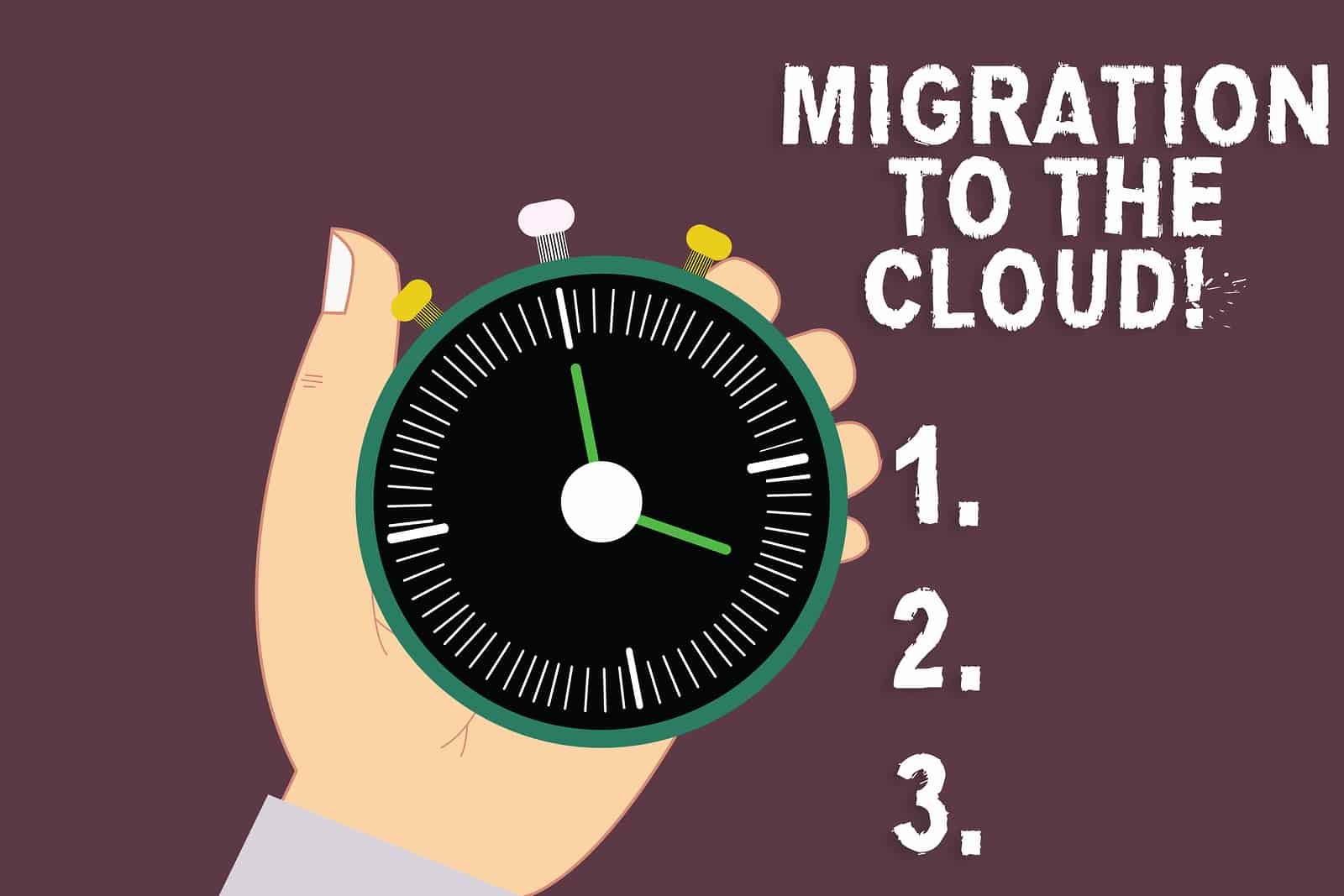Considering Cloud Migration? First, Read This Checklist.
Actian Corporation
August 5, 2019

Most modern companies have fully embraced the cloud as the preferred place to host the applications that their businesses use. Many new applications are “cloud-native” or are designed specifically for operating in the cloud, while many of the legacy applications that your company uses today may have been designed to run on hardware in your company’s data center, i.e., on-premises. The good news is that even if you have legacy applications, most software providers are now offering cloud-hosted options for their solutions.
Before you make the move to migrate legacy apps to the cloud, there are a few things you need to consider. Use the following checklist as a tool to help you understand if cloud migration is right for your app, and if so, how you can increase the success of the migration process.
- Does the Cloud App Have All the Functions You Need?
While most commercially available software packages that were developed for on-premises hosting now have cloud equivalents, the first thing you should look for is functional parity. To accelerate time to market, some software providers have only implemented a subset of their tool’s functionality in their cloud offerings. Now is a good time to review not only what features you have in your applications but also how are they being used by your users and business processes.
- Can Your Users Access the Cloud Application?
One of the most significant downsides of cloud apps is that they require connectivity from the end user’s device to the cloud services in order for the app to work. If your users need to be able to leverage the application when traveling to remote areas where reliable internet connectivity is unavailable, this can be an issue. Connectivity can also be a challenge in corporate environments with robust network security protocols and firewalls that restrict access to external resources. Enabling users to access cloud apps may require configuration to your network’s access control configurations.
- Where is the App Hosted?
Many people don’t understand that the cloud is an extensive network of data centers run by large service providers. In this network, applications may be hosted in a specific data center or region, or they may be replicated to operate in data centers across the globe. It is important to understand where your users are located and use this information to guide your cloud deployment. If your users are all in one city or region, it may be sufficient to have your app hosted only in that region. If you have users in many different regions, more of a global footprint may be needed. What you want to avoid is having you users in one region and your app hosted in another. Network latency can cause significant impacts on your end-user’s experience related to app performance.
- Where is the Data Stored?
In on-premises applications, typically the database that the application uses is co-located with the web or app server that brokers user transactions. With cloud implementations, this is not always the case. You may have application instances distributed around the globe, but leverage a centralized database to record transactions. Depending on the nature of the application, this configuration could cause performance issues if the network latency between the app and its data store is significant. Some modern architectures afford the ability to store and process data within the application itself (wherever it is deployed). This is an important issue for your solution architects to investigate.
- How Will You Manage Integration?
Digital business processes often involve the use of multiple applications and many data sources. Integrating your cloud apps with other systems and data stores, both on-premises and in the cloud can be complex and difficult to maintain. Legacy approaches that leverage point-to-point integrations are often not effective in cloud environments. Consider the use of a hybrid data integration platform such as Actian DataConnect to help you solve this problem. By managing your connections in one place, you can enable greater flexibility in your deployment strategies.
- Do You Need to Replicate Data to Your Cloud Data Warehouse?
When looking at your data integration needs for a cloud app, consider what (if any) of the application’s data needs to be replicated into your data warehouse for data mining and detailed analytics. A cloud data warehouse can be a powerful part of your cloud strategy, enabling less data to be retained locally (a key cost driver), improved analytics capabilities, and easier data retention should you decide to replace the cloud app in the future
As you can see from this checklist, there are some basic things that you need to evaluate to determine whether the migration of your application to the cloud will meet your business needs. There are also some considerations that can help increase business value once your cloud migration is complete. The choices you make about how your application data is managed are important to both achieving sustainable value for your business as well as enabling agility for the future.
Actian DataConnect is a hybrid data integration platform designed to help companies manage the connections between applications, platforms, and data sources across the enterprise. By managing your connections in one place, you can lower your operational costs, improve security, and enable business agility. To learn more, visit www.actian.com/dataconnect/
Subscribe to the Actian Blog
Subscribe to Actian’s blog to get data insights delivered right to you.
- Stay in the know – Get the latest in data analytics pushed directly to your inbox
- Never miss a post – You’ll receive automatic email updates to let you know when new posts are live
- It’s all up to you – Change your delivery preferences to suit your needs